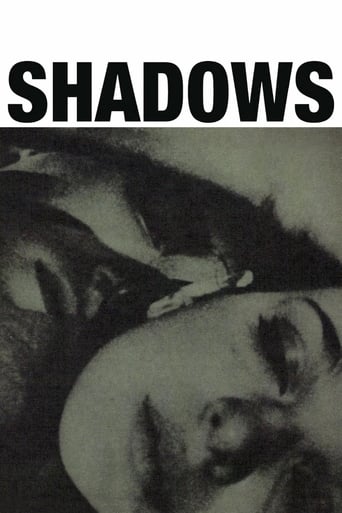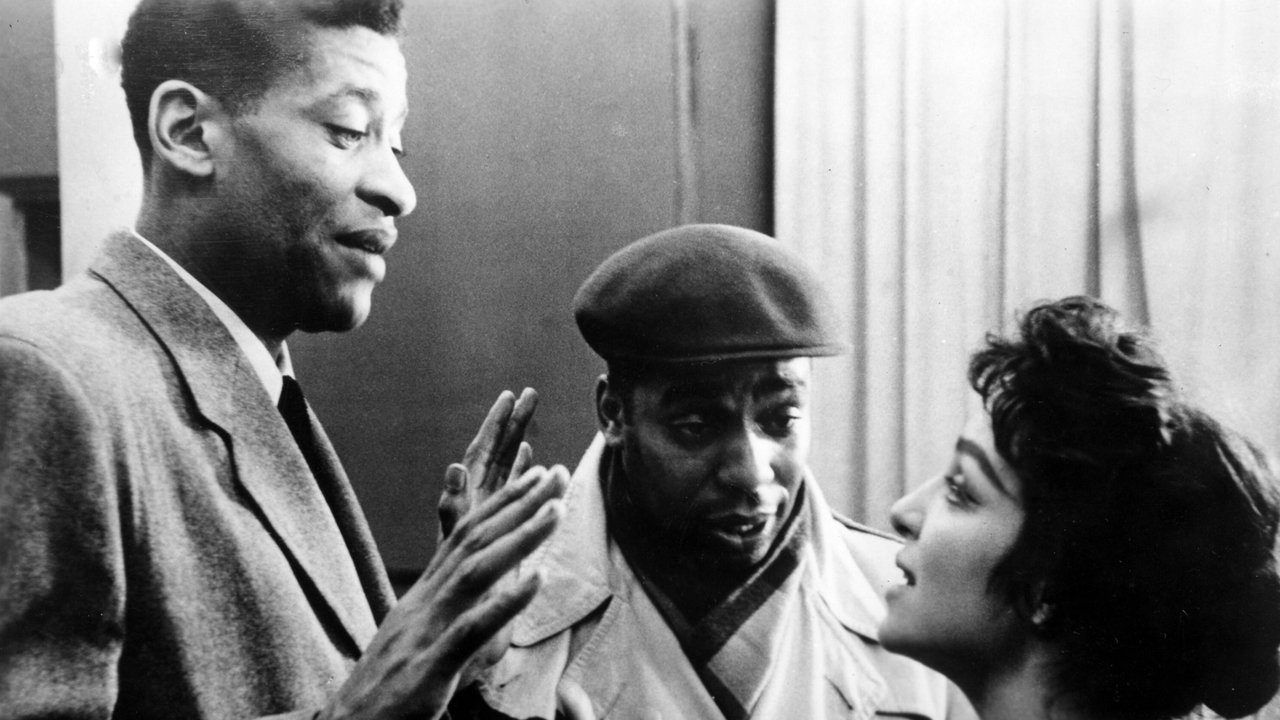Martin Bradley
John Cassavetes shot his first film in the streets of New York and it was almost totally improvised, (for instance, all the characters are named for the actors playing them), taking race as his subject. There was no way this would play in Middle America but it broke new ground and established Cassavetes as a major talent, particularly in Europe, (it was nominated for Best Film from Any Source at the BAFTA's), where cinema meant a hell of a lot more than selling popcorn.The plot is virtually irrelevant, in fact you might say it is non-existent, and the acting of Lelia Goldoni, Ben Carruthers and Hugh Hurd as the three siblings whose lives it follows, is ropy at best but the film has a raw intensity that still astonishes to this day. It's also probably the best record yet of what became known as 'the beat generation'. Over 50 years later young film-makers are still copying Cassavetes' style.
gavin6942
John Cassavetes' jazz-scored improvisational film explores interracial friendships and relationships in Beat-Era (1950s) New York City.How fascinating that the characters briefly discuss existentialism, the thoughts of Jean-Paul Sartre and put the film in the context of the beat generation. Those of us not having lived at the time may not be sure how influential Sartre was in his own day. He certainly still is today (2013), but it is nice to see how he influenced thought and film early on. Can any philosopher today claim to have such potency? Can the average person name a living philosopher?The film itself may not be a Beat film, but the action clearly takes place on the edge of the Beat world. Much of the lingo (like "mad chick") works itself into the story, and there is, of course, the jazz theme.The film is said to be an "improvisation", and one wonders to what degree there was a script and how much was truly improv. All the characters share their names with the actors that play them, making the lines much more blurred than in a strictly script-based acting job. This is not to say there was no acting -- the characters are all incredible.Where this picture excels, though, is with racial issues. We see that racism is often really only skin deep -- a black woman with light skin is seen as white, despite having a black family, raised in a black community, and so on. How much should our skin dictate our identity?Cassavetes successfully worked outside the studio framework, and while there may be a lack of budget and polish, what replaces it is a heart and soul the studio never had (and some might say still does not have today).
mark.waltz
If you wish for the days when New York City was not overcrowded, filled with sleaze and more like the movies, then 1959's "Shadows" is not the vision of Gotham for you. This independently made feature from ground-breaking artist John Cassavettes uses real people to act out the drama of a city that in 1959 was no less complicated than it is today, only free of cell phones.With marquees of the Broadway musical "The Most Happy Fella" and the movie "The Ten Commandments" in the background, the lights of Times Square take on a role as a character in the film as much as the actors speaking the often improvised lines. The plot is similar to things you've seen in movies before (Boy wants girl & vice versa, but various obstacles stand in their way), but these people aren't speaking out of the minds of some Hollywood scriptwriter. They are speaking out of the minds of real people. They talk over each other at times, don't often make sense or have a direction in their communication, but it's dialog you can imagine actually hearing on the streets.The original 16mm photography (now re-mastered to 35mm) is rough and at first jarring to get used to. But once you're inside these character's lives, you feel you are on the streets with them, pushing through the crowds as they do. You also know you're not going to be snapping your fingers like the Sharks or the Jets. The editing is jerky, the background music is that of street sounds, and the camera moves like a turning head going back and forth from character to character. It's all a bit claustrophobic at times, but it's all too real. If there was an Off Broadway state of mind for cinema, this would be the quintessential example. Cassavettes' inventiveness paved the way for such future ground breakers as Francis Ford Coppolo, Martin Scorsese and Steven Spielberg.As a recommended viewing co-features, take in the more family oriented "The Little Fugitive", "Lovers and Lollipops" and "Weddings and Babies" for a view of New York City that you won't get in the Bowery Boys movies or in "On the Town".
jpschapira
In the end credits of "Shadows", after we read 'directed by John Cassavetes', some white letters on the screen can be seen: "The film you have just seen is improvised", they say. I am always pursuing the fact that words are so important in movies since filmmakers started using them because, basically, there's no film without a screenplay and many other reasons.Cassavetes pursued the same goal, and he believed in the freedom of words; "Shadows" is the perfect example. It's a film with no real main characters, with no real main plot lines; it's mostly people in different situations, talking. Yes, some of the situations are connected but Cassavetes, apparently always in a rush to get to the talking, uses a fast forward technique when the characters are going somewhere or escaping from someone and are not speaking.Appearances are everything in this movie. For example, there's a brilliant score, full of jazz influences and a lot of fantastic solos, and there's one character that says he's a jazz musician and plays the trumpet (Ben, all the characters' names are the same names the actors'). However, we never see him play the trumpet or jam with a band; he doesn't even talk about music and just wanders with his friends around the city. They do talk, a lot, and about anything that's in their minds; going from how intelligent each of them are to the hilarious analysis of a sculpture."Shadows" is funny in its intellectual references in parts like the one above, because these friends are not cultured. The only important female character in the film (Lelia), though, wants to be an intellectual. But again, she has one very interesting conversation with an older man at a party, about a book she's trying to write, and about how to confront reality; but nothing to do with being intellectual. At that same party, a woman is actually making an intellectual statement, full of complexity, and asks a guy beside her: "Do you agree?". "Yes", he says, but you can tell he doesn't know what she's talking about.Another character, a singer (Hugh), talks about his glory days in occasions, and we see him perform only once; but no references to the musical industry there. The focus of Cassavetes is the singer's relationship with his manager (Rupert), which most of the time involves chats about trivial stuff and not real 'musical' talks. So the trumpet player's important deal in "Shadows" is the time he spends with his friends; the intellectual wannabe girl's is her way of handling romantic relationships (one of the movie's strong points) and the singer's is the bond with his manager
Appearances.The reason why performances are not important in this movie is simple. Cassavetes needed people who could master improvisation, without mattering if they were actually good. I believe some of them aren't, but they surely know how to improvise in a scene, and you can notice how well they do it. "Shadows" is not about performers; it's about a way of making cinema, based on the magic of conversation; and there you could say that performances mean something.That's why in every conversation the camera is like a stalker, constantly on the eyes of every character, constantly looking for the expressions that come with natural speech. There's a scene where the trumpet player and his friends are trying to pick up some girls. They are three, so each of them sits beside one girl (the girls are three two) in three different tables. They all talk at the same time and the camera shoots through the table, and sometimes the friends look at each other, while they say whatever they are saying
It's natural.


 AD
AD






